
Menopause Brain Fog is real: A Simple Guide with Symptoms and Treatment
Menopause Brain Fog is real: A Simple Guide with Symptoms and Treatment Women in their 40s and 50s who are just entering the end of

There is so much noise around women’s health. Specifically, PCOS and most of it seems to be scientifically incorrect. PCOS is one of the most common endocrine disorders in women, affecting one in four women of reproductive age, which is 25% of the entire female population, so it is only fair to bust the myths around it. Before we debunk the misconceptions, here’s a little about PCOS.
A little about PCOS
Polycystic Ovary Syndrome or PCOS is an endocrine disorder that affects the way a woman’s ovary works. Women who suffer from PCOS either have an irregular period, excess production of male hormone or polycystic ovaries (where there are multiple cysts on the ovary). The excess androgen and cysyts in the ovaries prevent ovaries from releasing eggs every month. However, the exact cause of PCOS is still unknown.
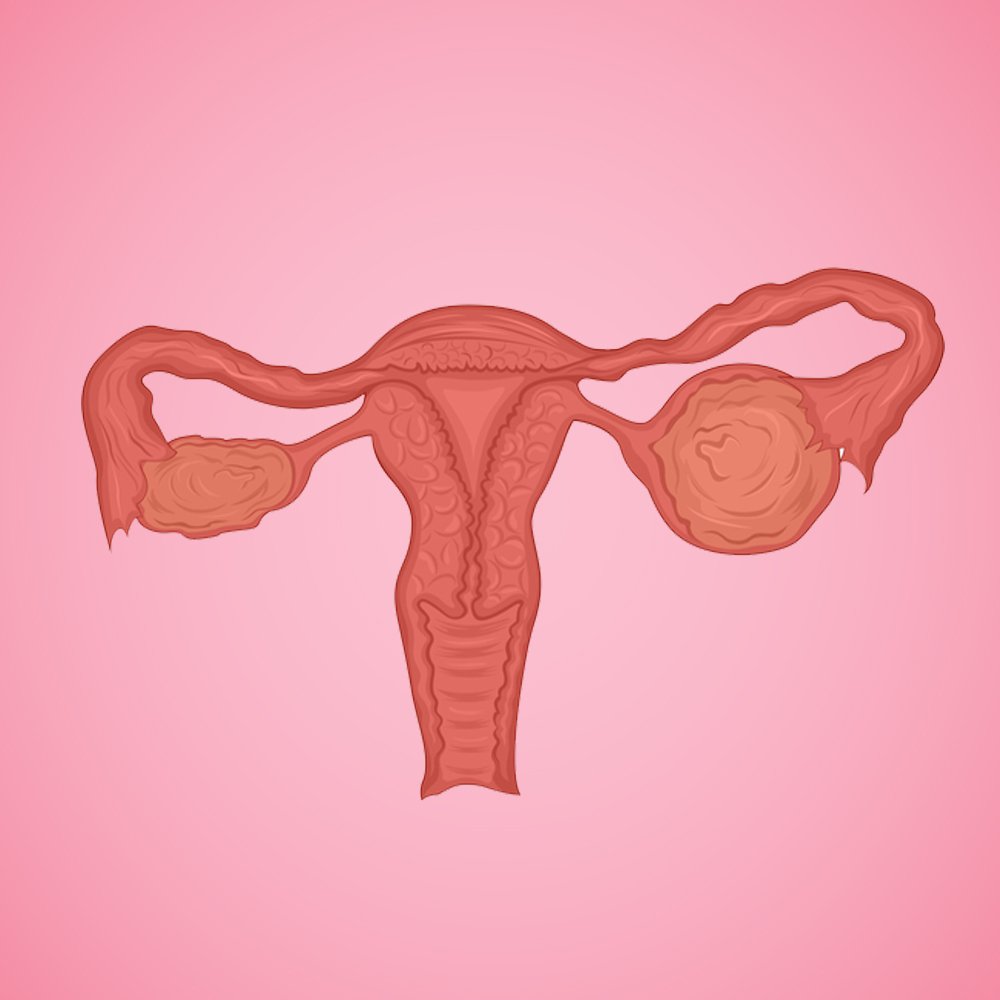
Let’s go on and bust the myths around it because separating myth from fact can help you live a healthier life with PCOS.
Myth #1: Having polycystic ovary syndrome means you have cysts in your ovaries
This is untrue. The name of the disorder is very misleading. If you have PCOS, it doesn’t mean you have cysts in your ovaries and having cysts in your ovaries doesn’t mean you have PCOS.
To be diagnosed with PCOS, you need to have at least 2 of the following symptoms:

Let’s go on and bust the myths around it because separating myth from fact can help you live a healthier life with PCOS.
Myth #1: Having polycystic ovary syndrome means you have cysts in your ovaries
This is untrue. The name of the disorder is very misleading. If you have PCOS, it doesn’t mean you have cysts in your ovaries and having cysts in your ovaries doesn’t mean you have PCOS.
To be diagnosed with PCOS, you need to have at least 2 of the following symptoms:

Let’s go on and bust the myths around it because separating myth from fact can help you live a healthier life with PCOS.
Myth #1: Having polycystic ovary syndrome means you have cysts in your ovaries
This is untrue. The name of the disorder is very misleading. If you have PCOS, it doesn’t mean you have cysts in your ovaries and having cysts in your ovaries doesn’t mean you have PCOS.
To be diagnosed with PCOS, you need to have at least 2 of the following symptoms:
Excess androgen – elevated male hormones levels may result in physical signs, such as excess facial and body hair (hirsutism) and occasionally, severe acne and male-pattern baldness.
Irregular periods – this is when you have less than nine periods a year with more than 35 days in between your periods.
Multiple cysts in your ovaries – your ovaries can be enlarged with tiny follicles that trap the eggs, preventing them from being released every month, causing the ovaries not to function properly.
So, having just cysts in your ovaries doesn’t necessarily mean you have PCOS.
If you have any of the above symptoms and would like to get professional advice, you can consult a gynaecologist from the comfort of your home via oDoc.
Myth #2: You can’t get pregnant if you have PCOS
INCORRECT! YOU CAN GET PREGNANT EVEN IF YOU HAVE PCOS.
PCOS is a common cause of infertility due to the irregular release of eggs from the ovaries and the hormonal imbalance which interferes with fertilisation, BUT this isn’t the case for everyone. You can still get pregnant both naturally and after fertility treatment. Many medications can stimulate ovulation which is the leading cause of infertility. Women with PCOS who want to start a family can try different fertility treatments. Have a sit down with your gynaecologist to understand your body and treatment options better.
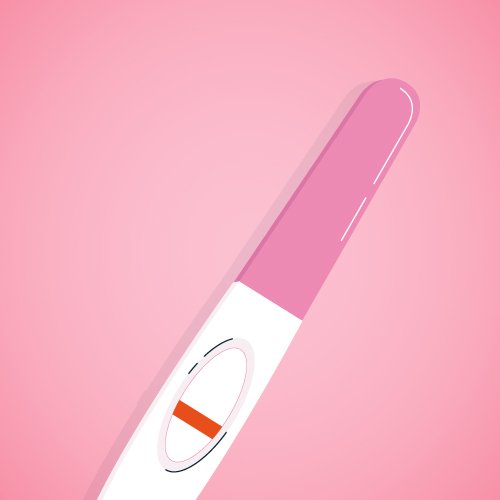
Myth #2: You can’t get pregnant if you have PCOS
INCORRECT! YOU CAN GET PREGNANT EVEN IF YOU HAVE PCOS.
PCOS is a common cause of infertility due to the irregular release of eggs from the ovaries and the hormonal imbalance which interferes with fertilisation,

BUT this isn’t the case for everyone. You can still get pregnant both naturally and after fertility treatment. Many medications can stimulate ovulation which is the leading cause of infertility. Women with PCOS who want to start a family can try different fertility treatments. Have a sit down with your gynaecologist to understand your body and treatment options better.

Myth #2: You can’t get pregnant if you have PCOS
INCORRECT! YOU CAN GET PREGNANT EVEN IF YOU HAVE PCOS.
PCOS is a common cause of infertility due to the irregular release of eggs from the ovaries and the hormonal imbalance which interferes with fertilisation, BUT this isn’t the case for everyone. You can still get pregnant both naturally and after fertility treatment. Many medications can stimulate ovulation which is the leading cause of infertility. Women with PCOS who want to start a family can try different fertility treatments. Have a sit down with your gynaecologist to understand your body and treatment options better.
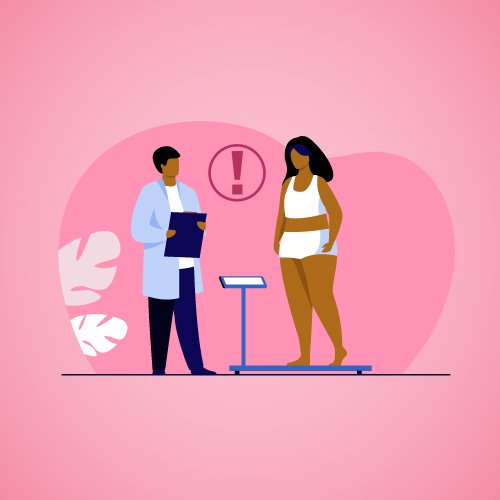
Myth #3: You can only get PCOS if you are obese or overweight
Again, nope. This is not true. PCOS is more common in overweight women than lean women, and obesity can worsen the symptoms, but it can affect women of any body type and size.
One of the causes of PCOS is excess insulin in your body. This happens due to your cells forming a resistance to insulin which causes your blood sugar level to increase, and your body might produce more insulin to tackle it. Excess insulin causes more androgen to be produced, which causes difficulty with ovulation.
The body’s inability to use insulin properly can lead to weight gain. That’s why getting into the habit of eating healthy and exercising regularly is recommended as part of most women’s treatment plan.

Myth #3: You can only get PCOS if you are obese or overweight
Again, nope. This is not true. PCOS is more common in overweight women than lean women, and obesity can worsen the symptoms, but it can affect women of any body type and size.
One of the causes of PCOS is excess insulin in your body. This happens due to your cells forming a resistance to insulin which causes your blood sugar level to increase, and your body might produce more insulin to tackle it. Excess insulin causes more androgen to be produced, which causes difficulty with ovulation.
The body’s inability to use insulin properly can lead to weight gain. That’s why getting into the habit of eating healthy and exercising regularly is recommended as part of most women’s treatment plan.

Myth #3: You can only get PCOS if you are obese or overweight
Again, nope. This is not true. PCOS is more common in overweight women than lean women, and obesity can worsen the symptoms, but it can affect women of any body type and size.
One of the causes of PCOS is excess insulin in your body. This happens due to your cells forming a resistance to insulin which causes your blood sugar level to increase, and your body might produce more insulin to tackle it. Excess insulin causes more androgen to be produced, which causes difficulty with ovulation.
The body’s inability to use insulin properly can lead to weight gain. That’s why getting into the habit of eating healthy and exercising regularly is recommended as part of most women’s treatment plan.
Myth 4: Losing weight is how you get rid of PCOS
Unfortunately, there is no cure for PCOS, so losing weight will not make PCOS go away, but it can help manage many of the symptoms. It is said that 10% reduction in body weight can reduce clinical symtoms by 80-90%. Losing weight will help with balancing the hormones. Lifestyle changes, such as healthy eating and regular exercise, improve the way your body uses insulin and, therefore, regulates your hormone levels better, thus helping your symptoms.
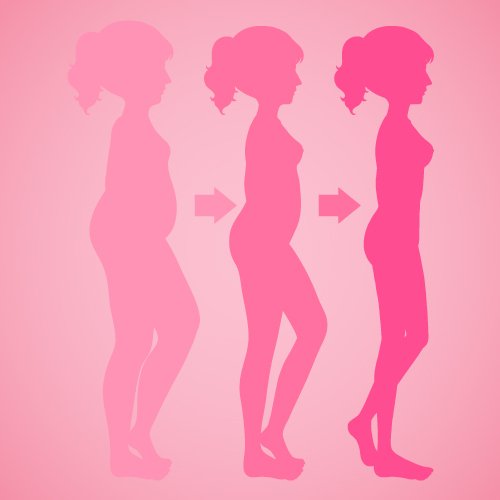
Myth 4: Losing weight is how you get rid of PCOS
Unfortunately, there is no cure for PCOS, so losing weight will not make PCOS go away, but it can help manage many of the symptoms. It is said that 10% reduction in body weight can reduce clinical symtoms by 80-90%. Losing weight will help with balancing the hormones.

Lifestyle changes, such as healthy eating and regular exercise, improve the way your body uses insulin and, therefore, regulates your hormone levels better, thus helping your symptoms.

Myth 4: Losing weight is how you get rid of PCOS
Unfortunately, there is no cure for PCOS, so losing weight will not make PCOS go away, but it can help manage many of the symptoms. It is said that 10% reduction in body weight can reduce clinical symtoms by 80-90%. Losing weight will help with balancing the hormones. Lifestyle changes, such as healthy eating and regular exercise, improve the way your body uses insulin and, therefore, regulates your hormone levels better, thus helping your symptoms.
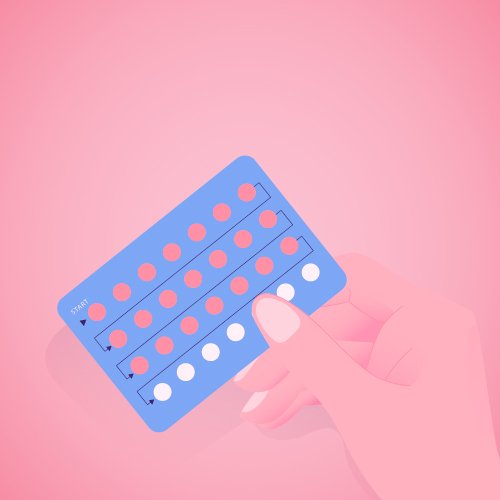
Myth 5: Women with PCOS do not need to use contraception
If you are not planning on getting pregnant, then you should always use contraception during sex. As mentioned above, ovulation is irregular when you have PCOS, so you never know when the egg will be released. So if you want to avoid unplanned pregnancies, always use a form of contraception.

Myth 5: Women with PCOS do not need to use contraception
If you are not planning on getting pregnant, then you should always use contraception during sex. As mentioned above, ovulation is irregular when you have PCOS, so you never know when the egg will be released. So if you want to avoid unplanned pregnancies, always use a form of contraception.

Myth 5: Women with PCOS do not need to use contraception
If you are not planning on getting pregnant, then you should always use contraception during sex. As mentioned above, ovulation is irregular when you have PCOS, so you never know when the egg will be released. So if you want to avoid unplanned pregnancies, always use a form of contraception.
Myth 6: Irregular periods = PCOS
No! Having PCOS may mean that you might have irregular periods but there are various other factors which can lead to irregular periods such as stress, extreme dieting and other endocrine disorders. Regular periods range between 3-7 days and occur every 21-35 days. Anything longer than this can be considered irregular. If you are experiencing irregular periods, speak to a doctor to get more information.
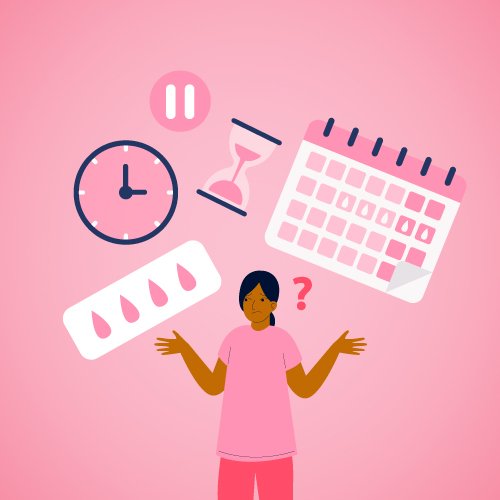
Myth 6: Irregular periods = PCOS
No! Having PCOS may mean that you might have irregular periods but there are various other factors which can lead to irregular periods such as stress, extreme dieting and other endocrine disorders. Regular periods range between 3-7 days and occur every 21-35 days. Anything longer than this can be considered irregular. If you are experiencing irregular periods, speak to a doctor to get more information.


Myth 6: Irregular periods = PCOS
No! Having PCOS may mean that you might have irregular periods but there are various other factors which can lead to irregular periods such as stress, extreme dieting and other endocrine disorders. Regular periods range between 3-7 days and occur every 21-35 days. Anything longer than this can be considered irregular. If you are experiencing irregular periods, speak to a doctor to get more information.
These are just a few of the misconceptions about PCOS. If you want more information or are experiencing any of the symptoms mentioned in this blog, please seek medical advice from an SLMC registered gynaecologist or GP via oDoc. Do not self-diagnose or self-treat PCOS.
Checked by Dr. Haroon Thowfeek and Dr. Mohamed Rishard
Source

Menopause Brain Fog is real: A Simple Guide with Symptoms and Treatment Women in their 40s and 50s who are just entering the end of
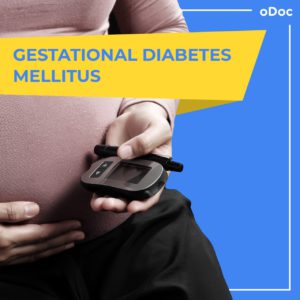
Did you know that gestational diabetes mellitus, also known as GMD, is one of the most common medical complications of pregnancy? What is GMD? Why
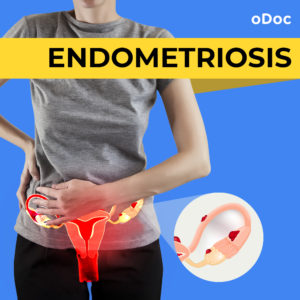
Endometriosis No woman looks forward to “that time of the month.” Dealing with nausea, stomach cramps, mood swings, back pains and fatigue, all whilst facing
නවතම සෞඛ්යය උපදෙස් එසැණින් ඔබ වෙත ලබා ගන්න